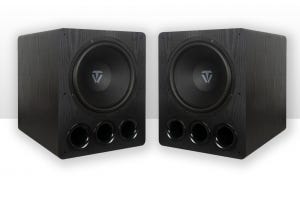
Whether or not music is a hindrance while working is an age old debate. Some claim that it helps them focus, while others claim it's just a distraction. With the rise of at-home offices since the beginning of the pandemic, more people now have the option to turn on some tunes while they work. So, is it really beneficial to turn on your speakers or headphones during work hours? Researchers say the answer depends on the music, the task at hand, and the individual.
The bottom line is that listening to music, regardless of the volume level or complexity, uses up a portion of your "mental bandwidth". So, whether you want it to or not, hearing music requires mental energy -- energy that may or may not be better used on your task at hand.
Mental Attention is Finite
When it comes to complex tasks like problem solving, analysis, or decision-making, having music in the environment can be a detriment. It can overstimulate your mental resources and be more of a distraction. So if your work requires more mental focus, you might want to think twice before putting on your headphones, as it can impact your performance.
With simpler tasks like sorting emails or inputting data that may feel more remedial, listening to music can occupy underused attentional resources. When you're completing a task that feels like second nature and doesn't require a lot of your mental energy, listening to music can enhance your performance and improve your focus.
Similarly, the complexity of music has an impact on how distracting it is. More complex music can be beneficial when completing simple tasks, as it can provide enough distraction to stop one's mind from wandering or help the individual block out irrelevant task cues. Similarly, simple, calming music might be better for more energy-intensive tasks as it is less distracting, especially when used to block out other environmental noise.
Everyone is Different
Music can affect work performance differently depending on a person's individual level of stimulation as well. Those who are more prone to boredom tend to pay more attention to visual and aural stimulation happening around them. So, complex music can be more of a detriment in this case, especially for more complex tasks. Individuals who are less prone to boredom show better performance on simple tasks when listening to complex music compared to simple music or no music.
When it comes to creative thinking, music can also be beneficial. Sam Ferguson from the University of Technology and Simone Ritter from Radboud University discovered that listening to music actually enhances creative thinking. So, if you work in a creative field, the same rules do not apply as those for problem-solvers.
Music can be beneficial not just for performance -- a study from LinkedIn and Spotify shows that 67% of employees reported that they listen to music to keep them motivated, and 41% reported that music helps them relax. Listening to music can be an emotional motivator over the course of the work day that improves productivity in the long run. If your work involves complex tasks, try turning music on in short intervals during breaks as a way to relax and rejuvenate emotionally.
Overall, whether or not listening to music is helpful at work is subjective. Some people may prefer it while completing simple tasks or motivating throughout the day, and others may find it distracting. However, the consensus remains that music can be a hindrance for more complex tasks that require significant mental attention. So, even if you enjoy hearing your favorite songs while you work, it may be impacting your performance.





